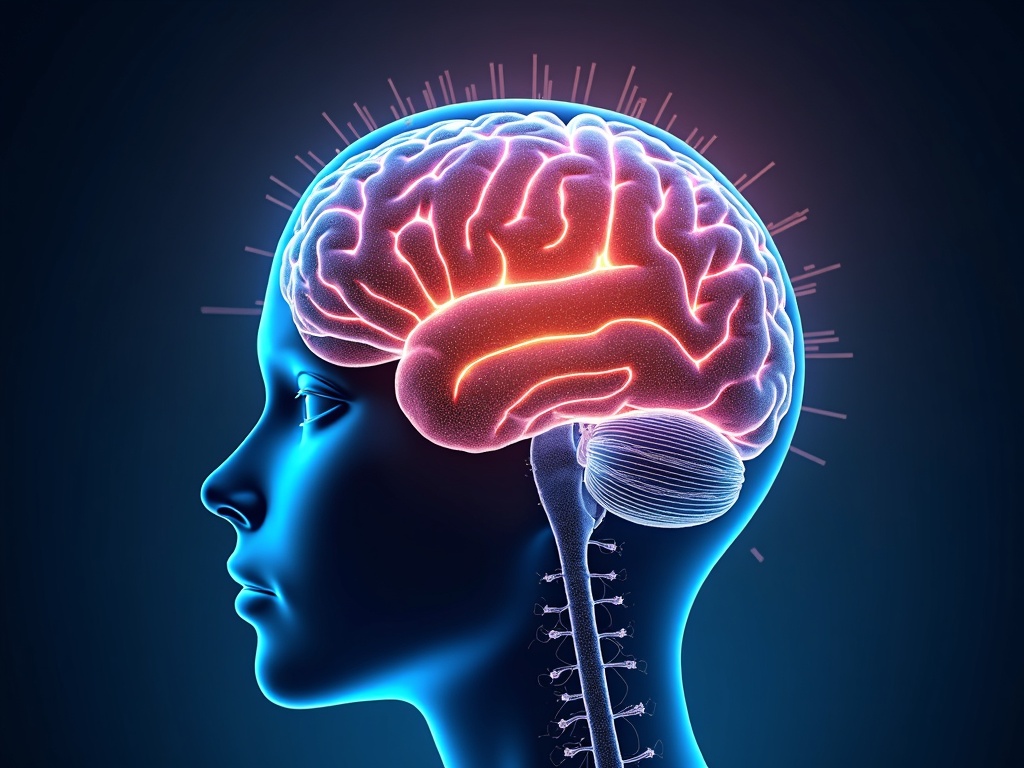How to Improve Brain Plasticity Naturally: Rewire Your Mind for a Better You
Imagine your brain as a vast, dense forest. Well-trodden paths represent your established habits and thought patterns. Brain plasticity is the forest's ability to grow new pathways, reroute existing ones, and adapt to a changing environment. This remarkable capacity allows us to learn new skills, recover from injury, and adapt to life's ever-evolving challenges. But how do you cultivate this inner landscape, encouraging the growth of beneficial neural pathways and, ultimately, improving your cognitive flexibility? The answer lies in harnessing the power of natural strategies.
Understanding Brain Plasticity: The Key to Lifelong Learning
Brain plasticity, also known as neuroplasticity, refers to the brain's ability to reorganize itself by forming new neural connections throughout life. For a long time, it was believed that the brain was relatively fixed after childhood. However, groundbreaking research has revealed that the brain is a dynamic and adaptable organ, capable of changing its structure and function in response to experience, learning, and environmental demands. This adaptability is driven by various factors, including:
- Synaptic Plasticity: The strengthening or weakening of connections between neurons based on activity. Neurons that fire together, wire together.
- Neurogenesis: The birth of new neurons in specific brain regions, such as the hippocampus (crucial for learning and memory).
- Cortical Reorganization: The brain's ability to remap functions from one area to another, often in response to injury or learning.
This ability to adapt has profound implications for our cognitive health, learning ability, and overall well-being. By actively engaging in activities that promote brain plasticity, we can enhance our cognitive function, improve our resilience to stress, and even slow down age-related cognitive decline.
The Natural Toolkit: Strategies to Boost Brain Plasticity
Fortunately, enhancing brain plasticity doesn't require expensive treatments or complicated regimens. Many natural and accessible strategies can stimulate neuroplasticity and promote a healthier, more adaptable brain. Here are some key areas to focus on:
1. Embrace Novelty and Challenge
Stepping outside your comfort zone is one of the most potent ways to stimulate brain plasticity. When you encounter new experiences, your brain is forced to create new neural connections to process and understand them.
- Learn a New Skill: Whether it's playing a musical instrument, learning a new language, or mastering a new software program, acquiring new skills challenges your brain and fosters new neural pathways.
- Travel to New Places: Exploring unfamiliar environments exposes you to new sights, sounds, and experiences, all of which stimulate your brain and promote plasticity.
- Engage in Creative Activities: Painting, writing, sculpting, and other creative pursuits encourage divergent thinking and problem-solving, forcing your brain to make new connections.
- Vary Your Routine: Even small changes, like taking a different route to work or trying a new recipe, can help break you out of autopilot and stimulate your brain.
2. Fuel Your Brain with a Healthy Diet
The food you eat directly impacts your brain health and plasticity. A diet rich in brain-boosting nutrients can provide the building blocks and support needed for optimal brain function.
- Omega-3 Fatty Acids: Found in fatty fish (salmon, tuna, mackerel), flaxseeds, and walnuts, omega-3s are crucial for brain cell structure and function. They enhance synaptic plasticity and support neurogenesis.
- Antioxidants: Abundant in colorful fruits and vegetables, antioxidants protect brain cells from damage caused by free radicals, supporting healthy aging and plasticity. Berries, spinach, kale, and broccoli are excellent sources.
- B Vitamins: Essential for nerve function and energy production in the brain. Whole grains, leafy greens, and lean proteins are good sources.
- Limit Processed Foods, Sugar, and Saturated Fats: These can impair brain function and reduce plasticity.
3. Prioritize Sleep and Stress Management
Sleep and stress significantly impact brain plasticity. Chronic stress and sleep deprivation can hinder neurogenesis and impair synaptic plasticity. Prioritizing these areas is crucial for a healthy, adaptable brain.
- Aim for 7-9 Hours of Quality Sleep: Sleep is essential for consolidating memories and allowing the brain to repair and regenerate. Establish a regular sleep schedule and create a relaxing bedtime routine.
- Practice Stress-Reducing Techniques: Mindfulness meditation, yoga, deep breathing exercises, and spending time in nature can help reduce stress levels and promote relaxation, fostering a more conducive environment for brain plasticity.
4. Exercise Your Body and Mind
Physical exercise and cognitive training are both powerful tools for enhancing brain plasticity. Physical activity increases blood flow to the brain, delivering essential nutrients and oxygen, while cognitive training challenges the brain and promotes new neural connections.
- Engage in Regular Aerobic Exercise: Activities like running, swimming, and cycling improve cardiovascular health and boost blood flow to the brain.
- Incorporate Strength Training: Strength training can also improve brain function and may even stimulate neurogenesis.
- Challenge Your Mind with Cognitive Exercises: Puzzles, brain games, and memory exercises can help improve cognitive function and stimulate brain plasticity.
5. Cultivate Mindfulness and Focus
Mindfulness practices, such as meditation, involve focusing your attention on the present moment without judgment. This can strengthen neural connections in areas of the brain associated with attention, emotional regulation, and self-awareness, leading to increased plasticity.
- Practice Mindfulness Meditation: Regular meditation can improve attention, reduce stress, and enhance brain plasticity.
- Engage in Focused Activities: Activities that require focused attention, such as reading, writing, or playing a musical instrument, can also strengthen neural connections and improve cognitive function.
- Limit Distractions: Reducing distractions, such as social media and email notifications, can help improve focus and attention, creating a more conducive environment for brain plasticity.
The Power of Neuroplasticity in Overcoming Challenges
Brain plasticity isn't just about enhancing cognitive function; it's also about resilience and recovery. The brain's ability to reorganize itself can be instrumental in overcoming challenges such as:
- Recovering from Brain Injury: After a stroke or traumatic brain injury, the brain can remap functions from damaged areas to healthy areas, allowing individuals to regain lost abilities.
- Overcoming Learning Disabilities: Individuals with learning disabilities can use targeted interventions to strengthen neural pathways and improve cognitive skills.
- Managing Mental Health Conditions: Brain plasticity plays a role in the effectiveness of therapies for mental health conditions such as depression and anxiety.
By understanding and harnessing the power of neuroplasticity, we can unlock our brain's potential for healing and growth.
Practical Tips for Implementing These Strategies
Incorporating these strategies into your daily life doesn't have to be overwhelming. Start small and gradually integrate new habits into your routine. Here are a few practical tips:
- Set Realistic Goals: Don't try to change everything at once. Focus on one or two areas at a time and gradually build from there.
- Make it Enjoyable: Choose activities that you find enjoyable and engaging. This will make it more likely that you'll stick with them.
- Be Consistent: Consistency is key to seeing results. Make a commitment to incorporating these strategies into your daily routine and stick with it.
- Track Your Progress: Keeping track of your progress can help you stay motivated and see how far you've come.
- Seek Support: Connect with friends, family, or a healthcare professional for support and encouragement.
Consider joining online communities or local groups focused on brain health and cognitive enhancement. Sharing experiences and learning from others can be a powerful motivator and provide valuable insights. Cultivating a supportive network can help you stay on track and overcome challenges.
The Future of Brain Plasticity Research
The field of brain plasticity research is rapidly evolving, with new discoveries being made all the time. Researchers are exploring new ways to harness the power of neuroplasticity for a variety of applications, including:
- Developing new therapies for neurological disorders: Understanding how the brain reorganizes itself after injury can lead to new treatments for stroke, traumatic brain injury, and other neurological conditions.
- Enhancing cognitive function in healthy individuals: Researchers are exploring ways to use brain plasticity to improve memory, attention, and other cognitive skills.
- Preventing age-related cognitive decline: By promoting brain plasticity throughout life, we may be able to slow down or even prevent age-related cognitive decline.
As our understanding of brain plasticity deepens, we can expect to see even more innovative and effective strategies for enhancing brain health and function.
Conclusion: Embrace Your Brain's Potential
Your brain is a remarkable organ, capable of adapting and changing throughout your life. By embracing novelty, fueling your brain with a healthy diet, prioritizing sleep and stress management, exercising your body and mind, and cultivating mindfulness, you can unlock your brain's potential for lifelong learning, resilience, and well-being. Embrace these natural strategies and embark on a journey to rewire your mind for a better you. The power to transform your brain – and your life – lies within your reach.

